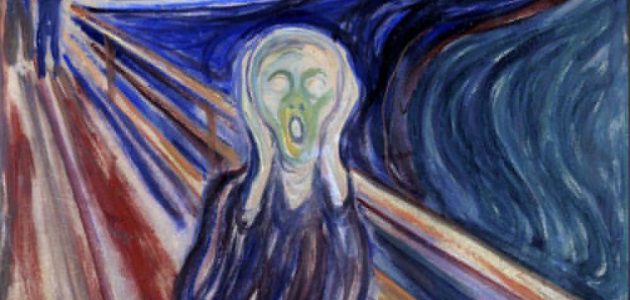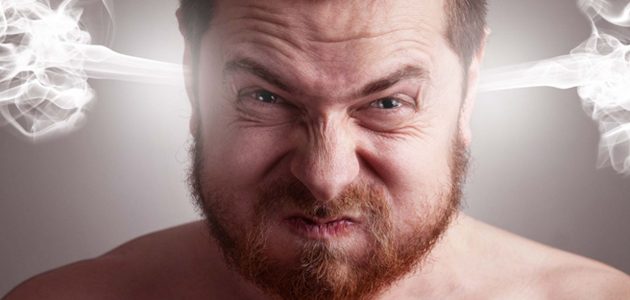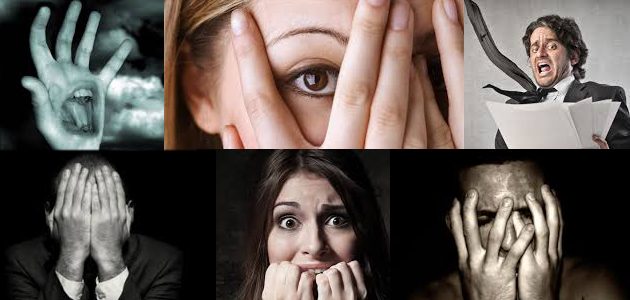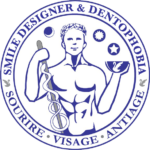Symptoms of stress: FOR SURVIVAL
It goes back to prehistoric times
OUR stress response system dates back to the hunt
to the mammoth and does not know that it is the XXI century
Stress and stomatophobia: The symptoms
The stress response system does not know it is in the 21st century:
He thinks he is still preparing you to hunt mammoths, like in the prehistoric times. He probably doesn’t know the difference between a mammoth and being stuck in a dentist’s chair.
In both cases, stress causes the same stress hormones to be released over and over again, which have the same effect on your body and brain.
WHY?
The stress generated in traffic when you are late for an important dental appointment causes a reaction on our brain similar to the one our ancestors would have felt during a mammoth hunt. In fact, this situation certainly triggered a stress response. The purpose of this response is to mobilize energy. Your body mobilizes energy by taking the energy contained in sugars and sending it to where the body needs it.
Example: When you’re about to lift a big box, you do what a bodybuilder does when he’s about to lift weights: you take a deep breath, then hold it to increase your strength. Energy mobilization looks a lot like this.
How do you do it?
The mobilization of energy is the way our body has found to prepare itself to defend itself during stressful situations.
Let’s go back in time to the caveman and imagine that you are preparing for a mammoth hunt.
The mammoth is coming!
Your stress response system prepares to fight and chase the mammoth or your stress response system prepares to flee and avoid injury and death if the mammoth proves too strong.
Any of these situations will give you energy!
The symptoms of stress
Here are some of the changes that occur in the stress response, whether you are facing a mammoth or suffering under a dentist’s drill:
- The cardiovascular system pumps.
- Your heartbeat increases and pumps more blood to your muscles.
- Your arteries contract to increase your blood pressure
- Your veins dilate to facilitate the flow of blood to the heart and oxygenate it.
- The breathing deepens.
- Your lungs, throat and nostrils open to let in more air and speed up your breathing.
- Your breathing deepens and allows more oxygen into your bloodstream.
- The senses are sharpened to keep you alert.
- Your pupils dilate to increase your vision
- Your hair stands up and makes you more sensitive to touch.
- You secrete endorphins (a natural painkiller) to numb the pain of an injury and help you stay focused.
- Digestion is interrupted.
- The blood vessels in the stomach, intestine and kidneys contract.
- Your mouth dries out and your bladder and bowels no longer function normally.
- The skin changes.
- The blood vessels under the skin tighten and thus reduce the risk of losing too much blood in case of injury.
- The sweat glands activate to cool you down by sweating.
- The reproductive system stops.
- Ovulation is interrupted and estrogen production decreases.
- The testicles reduce their production of testosterone.


Stress hormones
When we perceive something stressful, a cascade of biological events ensues.
This results in the secretion of stress hormones such as adrenaline and cortisol.
Where does cortisol come from and what is its purpose?
In scientific jargon, the stress response system is called the hypothalamo-pituitary-adrenal axis (or the acronym HPS).
When a stressor is identified, a small area of the brain called the hypothalamus sends chemical messengers to the pituitary gland. From there, a second chemical messenger is sent through the bloodstream to the adrenal glands. As their name suggests, these glands are located just above the kidneys. The second messenger tells the adrenal glands to secrete cortisol.
To be effective, stress hormones must bind to what are called receptors. It is as if the stress hormones carry a message with a key to tell all the cells in the body what to do. To receive this message, they need the right lock (a receiver).
When cortisol binds to receptors, it can interact with the body’s cells and tell them what to do. Because it is so important for many biological functions, cortisol has receptors almost everywhere in the body, including the brain.
Example: If you have to run away at full speed, you will send all your energy to your muscles to run faster and priority will be given to the receptors located in your leg muscles.
The perception of a stressor stimulates the stress response system!
But what stops him?
How do the adrenal glands know it’s time to stop secreting cortisol?
Example: If your boss gives a negative review of a job you are doing, you will probably stop doing it. It’s the same with negative feedback from cortisol and its receptors: It tells the stress response system to stop its activity.
Nature is well made and likes to take the path of least resistance to accomplish its tasks. As we have seen, cortisol attaches to receptors to function. These receptors have an intelligence of their own and know when there is enough. When enough stress hormones have been secreted and have done their job, they go back to the beginning of the stress response system and tell it to stop working.
This is called negative feedback.
The "STRESSORS"
Anything that causes the production of stress hormones is by definition a “stressor”. There are two main categories: physical and psychological stressors:
1 – Physical Stressors
These stressors cause tension or physical strain on our bodies
Example: Very cold or very hot temperatures, injuries, chronic diseases, pain.
2 – Psychological Stressors
These stressors are events, situations, individuals, negative or dangerous comments, or anything else that we interpret as negative or dangerous
Example: Not being able to find a nanny for your child when you can’t take time off work.
Or having to go to the dentist because you’re in a lot of pain and you’re afraid of it, or you don’t have time to go because you’re so busy at work.
The way to remember the distinction between the two categories of stressors is to tell yourself that absolutely everyone reacts to an absolute stressor while relative stressors are relatively stressful for some people.
The researchers propose a second distinction:
1 – The Absolute Stressors
All people confronted with these stressors interpret them as being stressful: they are objective and universal stressors
Example: An earthquake, a tsunami, a war.
2 – Relative Stressors
Only some people confronted with these stressors interpret them as stressful. These are subjective stressors and cause different reactions in different people.
Example: Pressure at work, traffic, taxes, an exam, a dentist appointment.

ACUTE PATIENT STRESS VERSUS CHRONIC DENTIST STRESS
There are two kinds of stress that have different effects on the brain and body:
1 – Acute stress
It is part of our daily life and helps our stress system to remain effective.
2 – Chronic stress : Health problems occur when we are repeatedly exposed to the same stressor or to different stressors, on a chronic basis and for a long period of time. When this happens, you can begin to suffer from the harmful effects of stress.

Acute Stress
This is the typical stress of the already overbooked patient who goes to the dentist in general. And in particular, the one who is afraid of the dentist and of course a fortiori the one who is phobic of the dentist.
This type of stress arises from specific events or situations over which we feel we have little control and which involve elements of unpredictability and novelty or which threaten our ego: C.I.N.E
Acute stress is not necessarily bad for us, as it stimulates the release of hormones that help us deal with the situation.
Example: Narrowly avoiding a car accident or giving a speech in front of an audience triggers several physical signs, such as feeling your heart beat very fast, becoming hyper-aware, feeling drained.
These signs are the result of the action of stress hormones. This is what actors call stage fright. They even need it to be more efficient!
It is the same in a dental office for the patient. Stress helps to better manage the ordeal of dental care.
But for some people and for various reasons related to their personal history, the action of stress hormones leads to exacerbated reactions of the body and therefore to a harmful paradoxical effect since these patients cannot be treated properly easily.
Chronic Stress
This type of stress results from prolonged and repeated exposure to situations that cause us to secrete stress hormones. Chronic stress is bad for our health, it weakens us. Many researchers believe that our stress response system is not designed to be constantly activated. In the long run, it can even lead to the exhaustion of the body.
Chronic stress is like standing on the edge of a cliff and having our genetic predispositions and lifestyle push us over the edge.
This is what we call the bulldozer effect!
Chronic stress leads to heart disease, high blood pressure, high cholesterol, type II diabetes and depression.
The effects of chronic stress are worse in people at risk of developing a chronic disease.
For example: A family history of heart disease, diabetes, high blood pressure or unhealthy lifestyle habits can sometimes be enough to trigger these same health problems in chronically stressed people.
When the stress response system is activated, other systems are automatically affected.
Example: Your heart rate increases, your blood pressure and blood sugar levels rise, and the capacity of your immune system is decreased.
If the stress response system goes haywire, other systems, such as those that regulate blood pressure or blood sugar levels, remain on alert. It’s as if chronic stress is disrupting all our physical systems, like a domino effect. The fall of one leads to the fall of the others.
It is typically the stress of the overbooked professional and in particular of the dentist that his hyper constraining modern exercise leads more or less to burn out for statistically one professional out of two!




